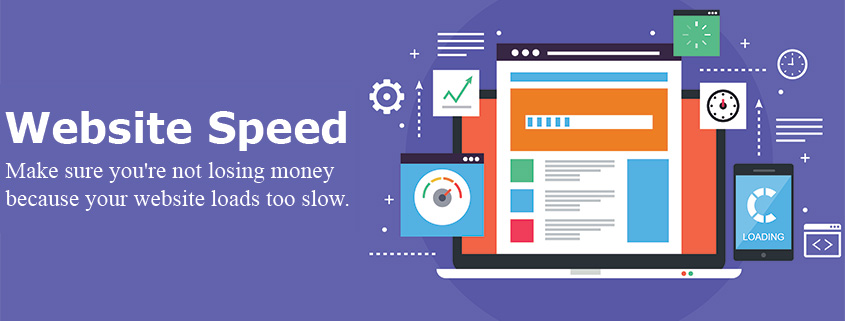Slow websites are simply unforgivable in today’s standards – just ask your regular web user who is likely to leave a website that doesn’t load within seconds of opening.
It’s no secret. People in 2019 like fast sites.
In fact, Google likes blazing fast sites so much it is starting to move to what it is called a ‘mobile first‘ index in 2019. It is high time for your business to REALLY focus on having the fastest DESKTOP and MOBILE experience you can deliver to your customers.
But let’s get to your current website first and the reasons it is annoyingly slow and underperforming.
Your server performance
As you know, your website should load within seconds after opening its link. When a user clicks on your site, it’s like opening a door. Your visitor is asking to be let inside.
Initially, what happens is the browser (Chrome, Firefox, Safari, etc.) sends a ping to your server which requests all the information and data necessary to load up your website. Generally, if your server’s performance is poor, it will load longer (sometimes not at all). No matter how impressively designed and coded your site is, a slow server will always give you a slow start.
This is the reason why if your business MUST invest in a good WordPress hosting partner, if you’re like most people who use this platform. Poor server performance is majorly caused by the web host. Cheap ones will usually offer a shared server, which means sharing space and resources with many other websites.
The server location
Ever made a long-distance call? It’s similar for websites to make the connection since the information has to travel extensively to get there. The data journeys cables, and it’s transmitted over satellites. When you click on a website, you send a message to the server asking it to load
If your server is based in the U.S. When a Singaporean visitor clicks on your website, the information needs to travel all the way across the ocean. It will request access to the server and travel all the way back to load it on their screen.
This happens amazingly fast, but seconds matter a lot to users and as said, a few seconds of extra loading time is tragic.
Code density
Large, dense elements chaotically slow down your website. In fact, one of the densest elements of your site is the code it needs to create it. If you’re familiar with HTML, CSS, and Javascript, it’s obvious that there is a massive amount of code behind your website. In Facebook, there are 60 million lines of code alone!
To amend this, consider a website overhaul to the latest coding standards so your developers can work on improving site speed and easing the process for the web hosting to loading speed upon request.
Traffic volume
Experiencing a lot of traffic can eventually lead to a slow website. Your web server at its current level has a limit to serve a certain number of people at once. You can liken it to queuing in a restaurant. The more people come into the restaurant, the slower they will be served.
Moreover, the shop will then be forced to use additional resources to assist. They must call extra staff from the back to help serve everyone, but the backend stuff is slowing down as well. The same thing can happen on your website. While the server will try to manage the extra traffic, it will slow down somewhere, which is why a dedicated server is should be a major consideration.
End Note
So where should you start? There are countless things that can get in the way of a great website experience, so if you have any of these things slowing down your site, consider re-assessing the user experience starting with the right WordPress hosting and see if this can smooth out these roadblocks.
Leave a Reply